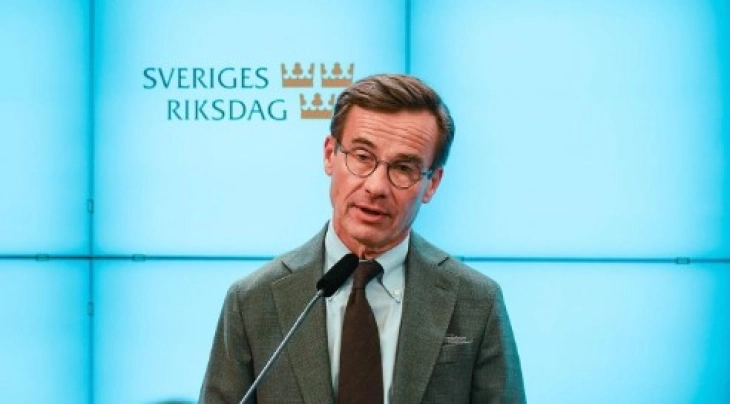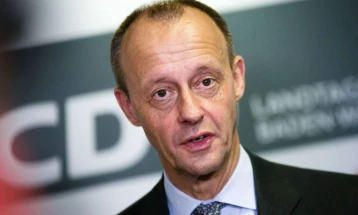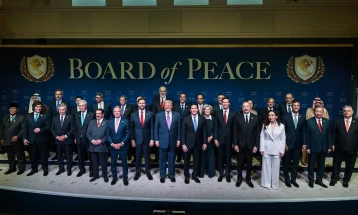Conservative Ulf Kristersson elected new prime minister of Sweden

Copenhagen, 17 October 2022 (dpa/MIA) - Sweden's top conservative politician, Ulf Kristersson, has been elected as the country's new prime minister after receiving the necessary support in a parliamentary vote on Monday, ending eight years of Social Democratic leadership.
The 58-year-old leader of the Moderate Party received the backing he needed from the Riksdag in Stockholm, also thanks to the votes of the far-right populist Sweden Democrats, with 176 of the 349 lawmakers voting for Kristersson and 173 against him.
Kristersson will thus succeed the Social Democrat Magdalena Andersson. He is due to make a government statement and present his Cabinet on Tuesday. The change of government will then be officially approved by King Carl XVI Gustaf.
"I'm grateful and happy about the trust I have received from the Riksdag, and also noticeably humble in view of the tasks that lie ahead of us," Kristersson said after the vote.
"Sweden finds itself in several parallel crises at once," the newly elected leader said, citing electricity prices, climate challenges and global issues, among others.
To tackle these crises, his Moderates will form a minority government with the Christian Democrats and the Liberals, which will work closely if unofficially with the Sweden Democrats in parliament.
The conservative/right-wing camp led by Kristersson's Moderates and including the Sweden Democrats achieved a narrow majority of 176 of the 349 seats in parliamentary elections on September 11, while the camp of Andersson's Social Democrats narrowly missed the majority with 173 seats.
Andersson had been leading a minority government since November 2021, just like her predecessor Stefan Löfven had in the seven years before.
The success of Kristersson's minority government depends heavily on the Sweden Democrats, who achieved a record result in the elections and came in second after the Social Democrats.
While they will not be represented in government directly, the new premier's coalition depends on the the far-right populists' support for its majority.
Minority governments are quite common in Scandinavian countries, with Denmark and Norway also governed by such coalitions. However, this is the first time that Sweden's far-right populist party will play a dominant role.
Kristersson, Sweden Democrat leader Jimmie Åkesson and other top representatives of the conservative bloc already anchored their cooperation in an agreement on key areas.
Those include the fight against gang violence and migration, with Åkesson announcing a "paradigm shift," including stricter regulations and lower quotas for refugees.
"There is no doubt that there will be a colder, harsher Sweden, a more authoritarian Sweden," said former health minister Lena Hallengren. While all three future governing parties had suffered losses in the election, the largest party of the bloc was dictating the agenda from the outside, she said, referring to the Sweden Democrats.
Annie Lööf, leader of the Centre Party, said: "Today's prime ministerial vote marks a paradigm shift in Swedish politics. Never before has a xenophobic, nationalist party been given keys to the government office."







